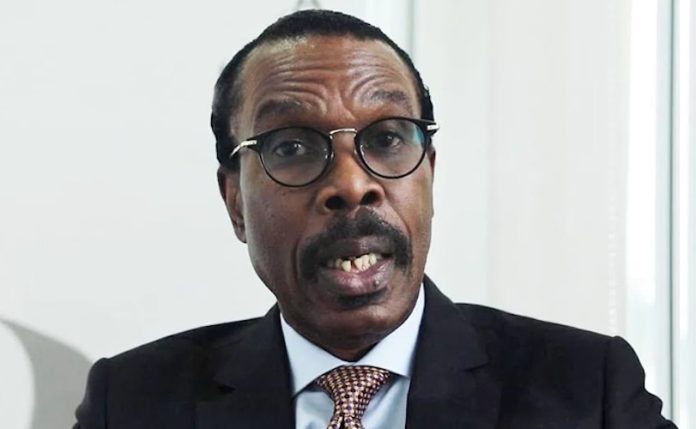A renowned economist and Chief Executive of Lagos-based economic think-tank, Financial Derivatives, Bismarck Rewane, said the Nigerian government spent approximately $8 billion to stabilize the country’s currency – the Naira.
This expenditure translates to nearly ₦12 trillion at the prevailing exchange rate.
His claim comes amidst the celebrated stability in the foreign exchange market, with a dollar exchanging for ₦1,500, compared to past volatility.
Naira’s Present Status
In an interview with Channels Television on Friday, Rewane, who serves on the Board of the Nigerian Economic Summit Group said substantial government intervention helped stabilize the exchange rate market. He noted that the apex bank has several initiatives to support the currency.
“We’ve borrowed $4 billion in bond issues,” Rewane said. “We’ve spent almost $8 billion trying to support the Naira at current levels.”
He urged Nigerians not to get carried away by the Central Bank of Nigeria‘s (CBN) recent decision to retain the interest rate at 27.50%.
Government Spending and Inflation
Rewane emphasized that stability in the Naira comes at a cost and called for caution despite the recent inflation rebasing. “There’s no way that inflation can reduce by 10% in a short period,” he said. “The man on the street does not believe that inflation has come down as sharply as that.”
He also mentioned that the parallel market appreciated to ₦1,505 to a dollar after the Central Bank maintained the status quo.
Government Rebuttal
The CBN did not immediately react to the economist’s claim but Special Adviser to the President on Information and Strategy, Bayo Onanuga, refuted the assertion, calling them untrue.
“It is not true. It is a ridiculous statement to make. The CBN will set the record straight,” Onanuga promised on an X post almost immediately after.
Exchange Rate Decline and Policy Changes
The administration of President Bola Tinubu floated the Naira in June 2023, adopting a willing buyer-willing seller approach. This resulted in the currency’s depreciation, but officials argued it was necessary to save the economy from collapse.
The CBN ended the segmentation of forex markets, causing the Naira to depreciate from about ₦460 to over ₦650 in the first week. By November 2023, it reached over ₦1,200 to a dollar and ultimately hit ₦1,900.
Inflation spiked to over 28% by early 2024, driven by higher import costs, rising fuel prices, and food price hikes.
In recent times however, relative stability has been achieved, with the gap between parallel and official exchange rates virtually closing.
President Tinubu’s predecessor, Muhammadu Buhari, consistently refused to devalue the naira, citing concerns about the disproportionate impact on the poor.
Like 👍, Comment, share this article, and Follow us on our social media handles.








